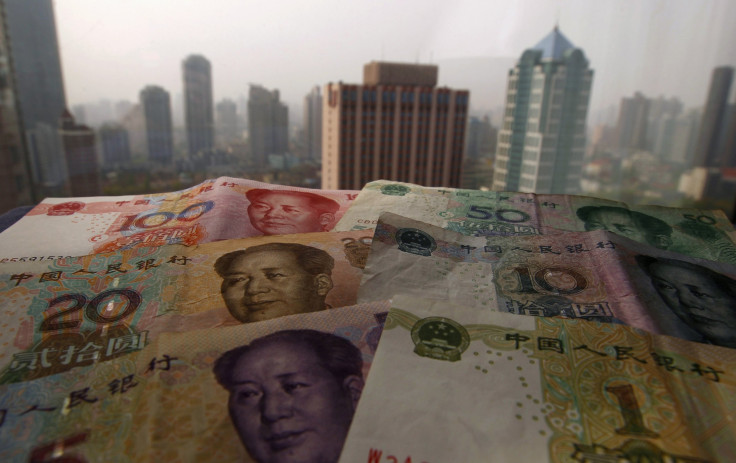China Shadow Banking: 6 Trusts Linked To Debt-Ridden Coal Company, Liansheng Group, Facing Default Risk

More troubling news about China’s shadow banking sector surfaced Friday. The state media reported that the industry’s exposure to a debt-ridden coal company, Liansheng Group, extends far beyond Jilin Trust -- the nonbank financial institution that is about to default on the fifth of a total six tranches amounting to nearly one billion yuan ($165 million) in trust products.
Six Chinese trust firms have lent more than 5 billion yuan to Liansheng, the official China Securities News reported Friday, citing an unnamed source.
Chang'an International Trust Shareholding Co. Ltd. sold 1.2 billion yuan in products linked to Liansheng affiliates last March that mature in the coming weeks, according to disclosures on Chang'an Trust's website. The paper did not name the other trust companies that lent to Liansheng, but said even the 5 billion yuan figure could be just the tip of the iceberg.
Jilin Trust has already failed to pay off 763 million yuan in maturing high-yield investments it sold to wealthy clients of China Construction Bank Corporation (SHA:601939), the country’s second-largest lender. That followed a near-default on a similar product from China Credit Trust last month that was marketed through Industrial Bank Co. Ltd. (SHA:601166) branches.
Most wealth management products are sold through state-owned banks, leading many investors seeking better returns than what bank savings offer to believe that the products are effectively risk-free, despite the often high promised yield. However, banks are not legally required to shield investors from losses when products they help create and sell go bad.
Investors told the Chinese-language 21st Century Business Herald that their willingness to invest in these products was based on their confidence in the large state-owned banks.
“CCB sales staff recommended us the Jilin Trust product and verbally assured us that the product carried no risk,” the paper quoted an unnamed product investor as saying. “We handed CCB our hard-earned money because we believed in the state-owned banks.”
These investors have pledged to see repayment not only from the trust firm itself, but also from CCB. “A few days ago, we went looking for CCB. CCB's leader in Shanxi Province still says it's not his responsibility. In the end, if they really don't take responsibility, we'll go to CCB and fight a war to the last drop of blood,” the investor said.
Trust firms make up the largest slice of China’s vast shadow banking sector and often partner with banks to sell wealth management products to wealthy individuals and firms. The frequent occurrence of individual default risks has provoked worries about systemic risk in the trust industry.
Assets under management at trust firms in mainland China surged 46 percent in 2013 to a record 10.9 trillion yuan, the China Trustee Association said in a statement on its website Thursday.
About 20 billion yuan of trust products had repayment difficulties in 2012, accounting for 0.27 percent of the industry’s assets at that time, the China Trustee Association said, adding that asset quality is “quite sound and systemic risks are impossible” with 9.06 billion yuan of reserves set aside.
Last year, 28.14 percent of the money raised through trust products was invested in industrial and commercial enterprises, an increase of 1.49 percent from a year ago. About a quarter went into infrastructure, mining and energy, a rise of 1.63 percent. The remaining portion was distributed among financial institutions (12 percent), the bond market (10.35 percent), real estate (10.03 percent) and others (14.23 percent).
© Copyright IBTimes 2024. All rights reserved.






















